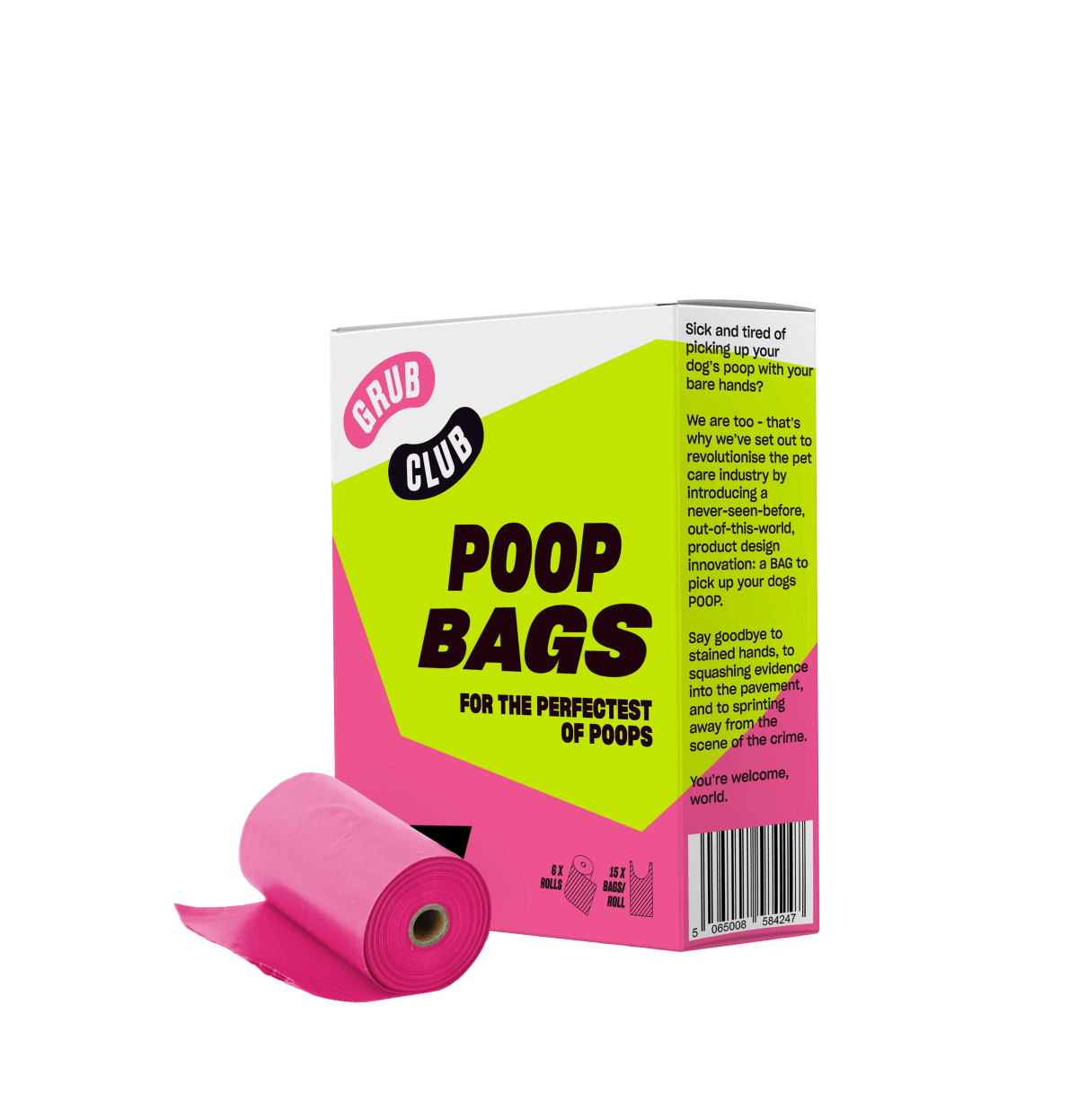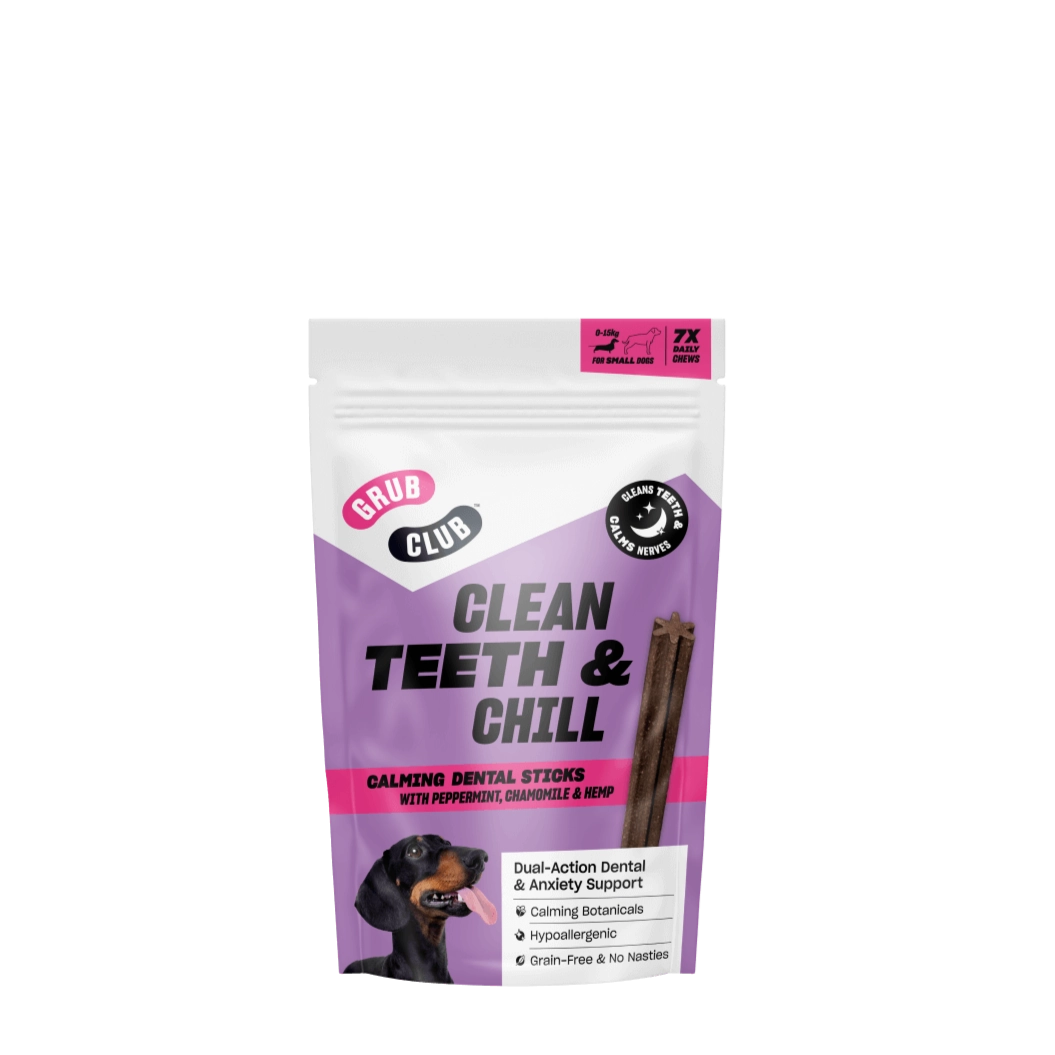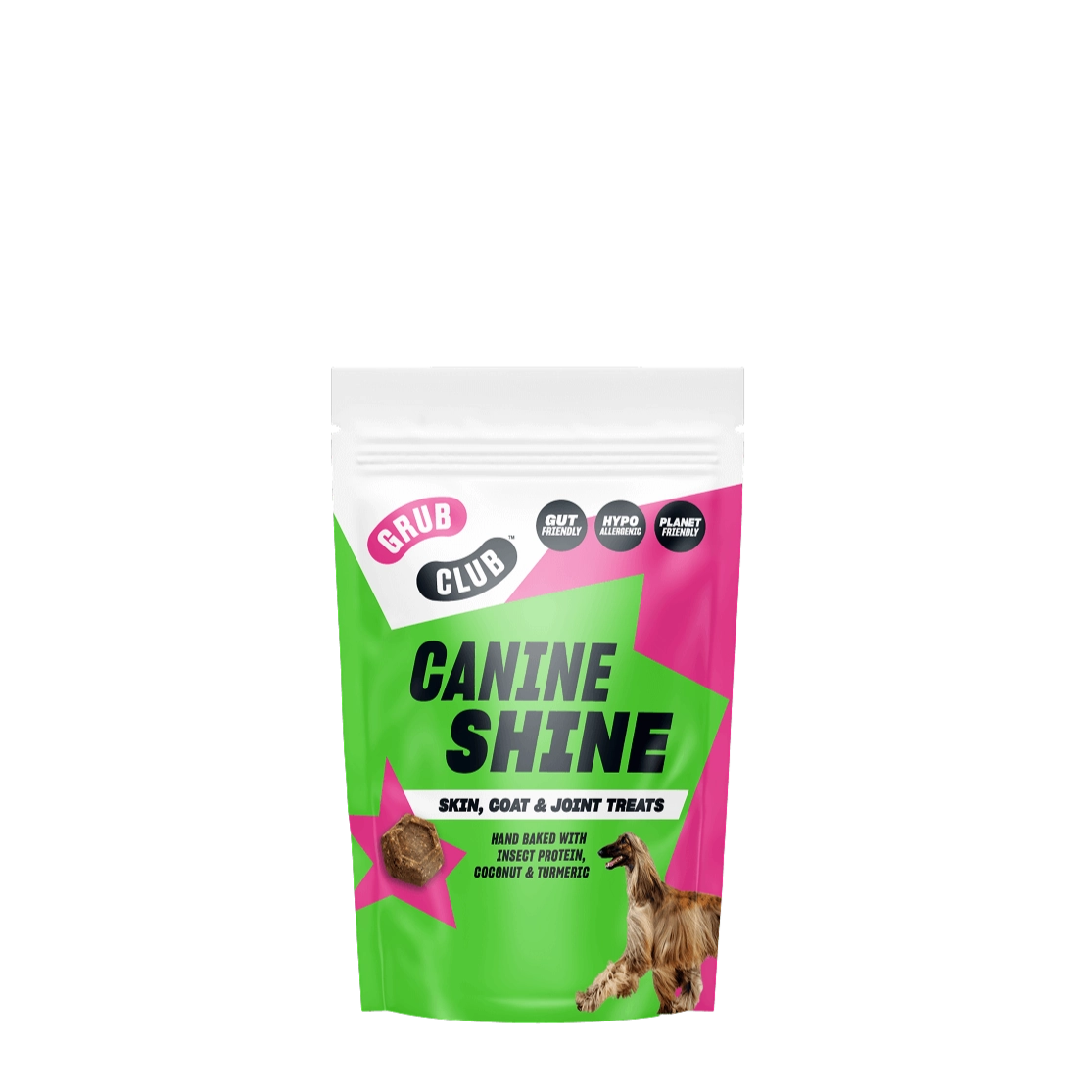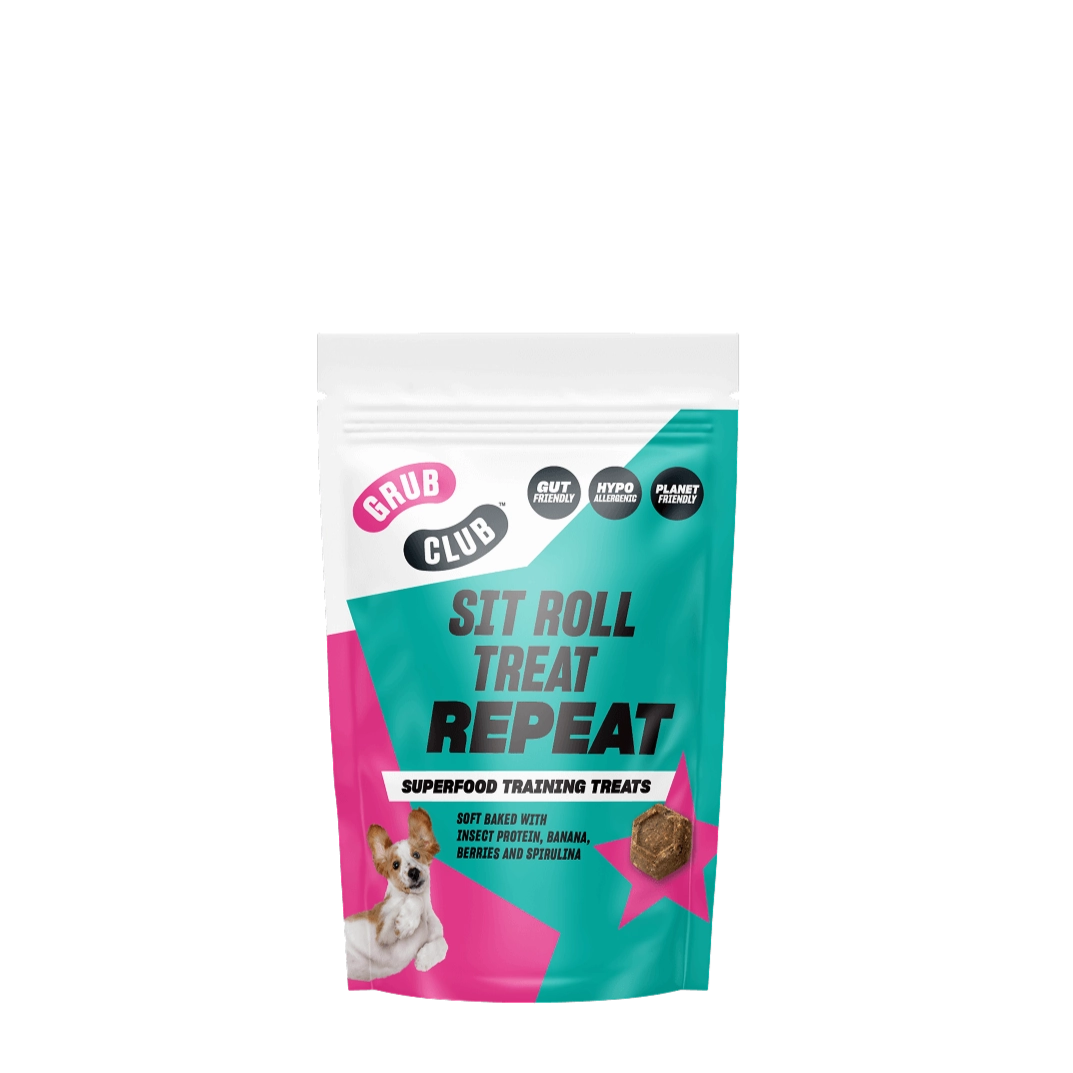POOP PERFECTOR
Prebiotic Gut-Health Treats
1 Pack
FREE UK Delivery on orders above £49.
You have £0.00 in your cart, spend £49.00 more and get free shipping.
1 Pack
60 Scoops
72 Bags
1 Pack (7 Sticks)
1 Pack
1 Pack
Or continue without a name
CheckoutFood allergies can present in all sorts of ways, and often develop sneakily over time - most food allergies in dogs develop in adulthood, rather than being something that they’re born with. Common signs to look out for include chewing paws, itchy skin, sore ears and upset stomachs. If this sounds familiar, your pup might be dealing with a food allergy. But how can you be sure? And more importantly, what can you do about it?
At Grub Club, we know how tough it is to see your dog suffer, and we’re here to help. Let’s dive into the signs of food allergies in dogs and explore how switching to an insect-based dog food could be the solution you (and your furry friend) have been searching for.
Food allergies in dogs can manifest in a variety of ways, making them tricky to spot. Here are the most common symptoms to watch for:
Skin Issues
Constant itching or licking (especially paws and belly).
Red, inflamed skin or rashes.
Recurrent ear infections.
Digestive Upsets
Chronic diarrhea or soft stools.
Vomiting after meals.
Excessive gas or bloating.
Behavioural Changes
Restlessness or irritability due to discomfort.
Loss of appetite.
If your dog is experiencing any combination of these symptoms, it’s worth investigating whether food allergies could be the cause.
It’s important to distinguish between food allergies and food intolerances:
Food Allergies: These are immune system reactions to specific proteins. They often result in skin or ear issues alongside gastrointestinal symptoms.
Food Intolerances: These are non-immune responses (think lactose intolerance in humans) and usually cause digestive issues primarily.
Both can make your dog miserable, but food allergies tend to be the trickier culprit.
The usual suspects are proteins found in common dog food ingredients, such as:
Chicken
Beef
Dairy
Wheat
Over time, repeated exposure to these proteins can cause the immune system to go haywire, mistaking them for harmful invaders. This triggers inflammation and the symptoms we see.
If you suspect your dog has a food allergy, the best course of action is to work with your vet. They may recommend a hypoallergenic diet trial, which means taking the following steps:
Switch your dog to a hypoallergenic (hydrolysed) or a novel protein diet (a protein they’ve never eaten before).
Persistence is key - your dog must eat only this for at least 6-8 weeks - that means no other treats, snacks or foods that they could potentially react to.
Gradually reintroduce foods one by one to pinpoint the allergen.
Novel proteins like insect-based diets are becoming a popular choice for elimination diets because they’re rarely encountered by dogs, making them unlikely to trigger allergies.
Insect protein is a standout choice for dogs with allergies:
It’s Hypoallergenic: Most dogs have never been exposed to insect protein, so it’s less likely to trigger a reaction.
Nutrient-Rich: Insects are packed with high-quality protein, healthy fats, and essential vitamins.
Digestibility: Easy on sensitive stomachs, insect protein supports better gut health.
Eco-Friendly: As a bonus, it’s a sustainable option for the planet.
Switching your dog’s food should always be a gradual process to avoid digestive upset. Here’s how:
Start Slowly: Mix 25% of the new food with 75% of their current food.
Increase Gradually: Over 7-10 days, increase the proportion of the new food until it’s 100%.
Monitor Closely: Keep an eye on their symptoms. You should see improvements within a few weeks, but it may take as long as 6-8 weeks in certain cases.
At Grub Club, we’ve helped countless dogs find relief from food allergies with our insect-based diets. Owners report everything from reduced itching and shinier coats to more energy and happier pups. Check out our reviews to see the difference for yourself!
Food allergies can make life miserable for your dog, but the right diet can turn things around. By recognising the signs, working with your vet, and considering a novel protein like insect-based food, you can give your dog the relief they deserve.
Ready to make the switch? Explore our range of insect-based dog food and see how they can help your pup thrive.





